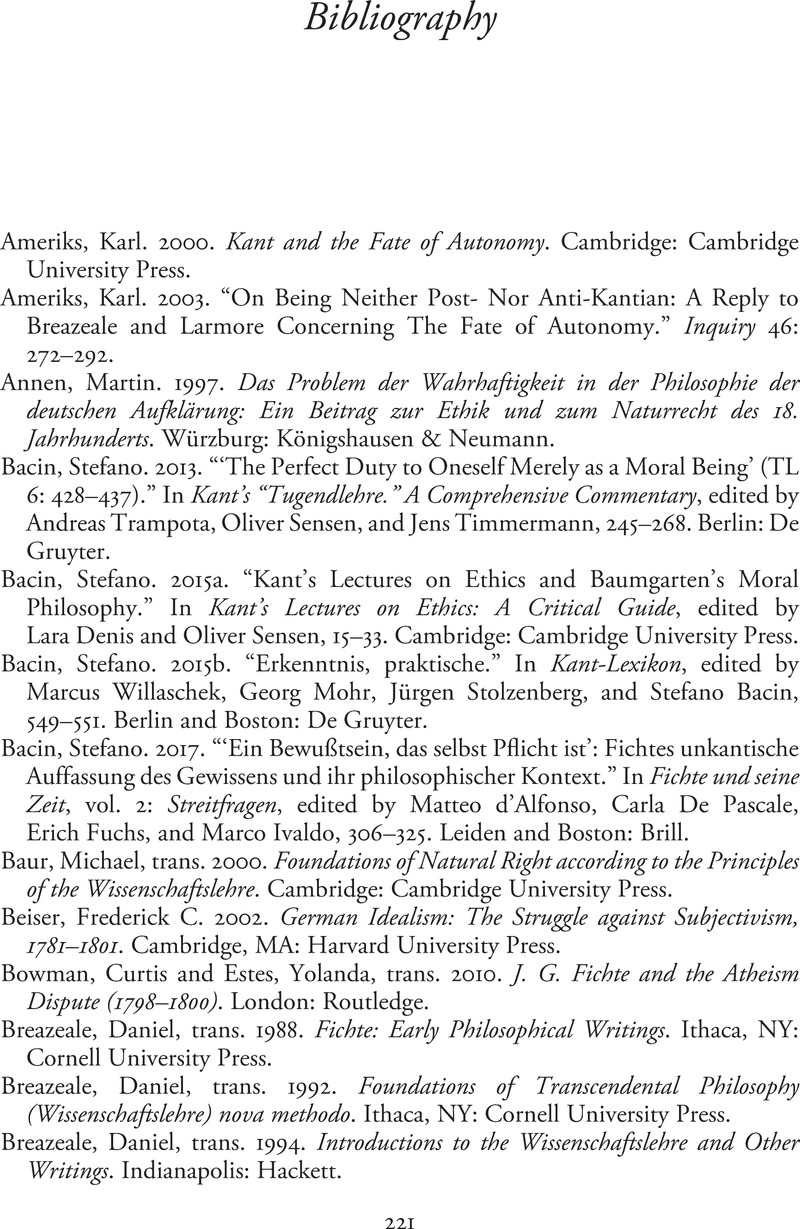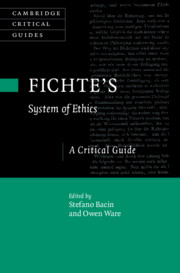Book contents
- Fichte’s System of Ethics
- Cambridge Critical Guides
- Fichte’s System of Ethics
- Copyright page
- Contents
- Contributors
- Acknowledgments
- Abbreviations and Translations
- Introduction
- Chapter 1 Fichte’s Ethics as Kantian Ethics
- Chapter 2 Fichte on Normativity in the Late Jena Period (1796–1799)
- Chapter 3 Fichte on Autonomy
- Chapter 4 Feeling, Drive, and the Lower Capacity of Desire
- Chapter 5 Fichte and the Path from “Formal” to “Material” Freedom
- Chapter 6 Fichte on the Content of Conscience
- Chapter 7 Fichte’s Theory of Moral Evil
- Chapter 8 Embodiment and Freedom
- Chapter 9 Ethics as Theory of Society
- Chapter 10 My Duties and the Morality of Others
- Bibliography
- Index
- Cambridge Critical Guides
- References
Bibliography
Published online by Cambridge University Press: 20 May 2021
- Fichte’s System of Ethics
- Cambridge Critical Guides
- Fichte’s System of Ethics
- Copyright page
- Contents
- Contributors
- Acknowledgments
- Abbreviations and Translations
- Introduction
- Chapter 1 Fichte’s Ethics as Kantian Ethics
- Chapter 2 Fichte on Normativity in the Late Jena Period (1796–1799)
- Chapter 3 Fichte on Autonomy
- Chapter 4 Feeling, Drive, and the Lower Capacity of Desire
- Chapter 5 Fichte and the Path from “Formal” to “Material” Freedom
- Chapter 6 Fichte on the Content of Conscience
- Chapter 7 Fichte’s Theory of Moral Evil
- Chapter 8 Embodiment and Freedom
- Chapter 9 Ethics as Theory of Society
- Chapter 10 My Duties and the Morality of Others
- Bibliography
- Index
- Cambridge Critical Guides
- References
Summary

- Type
- Chapter
- Information
- Fichte's System of EthicsA Critical Guide, pp. 221 - 228Publisher: Cambridge University PressPrint publication year: 2021

